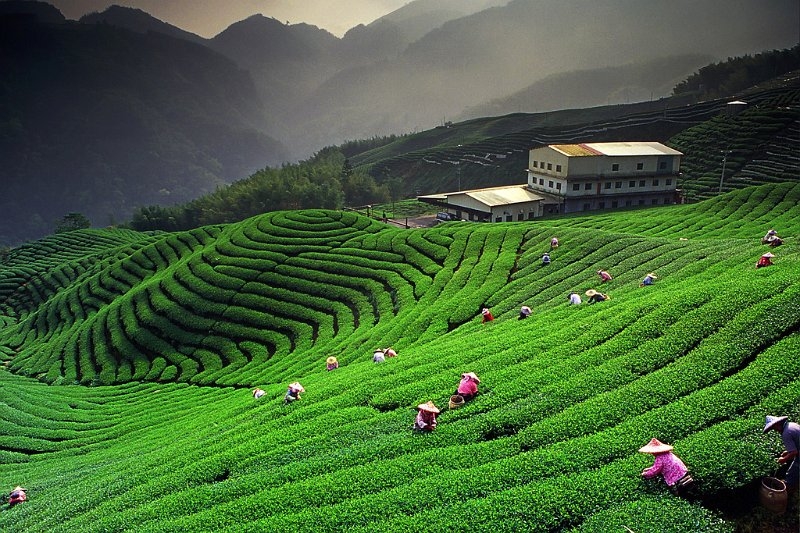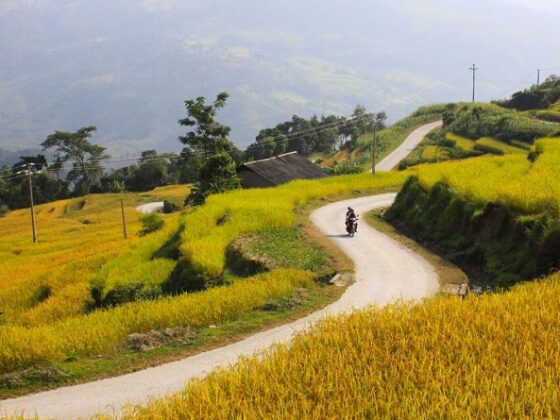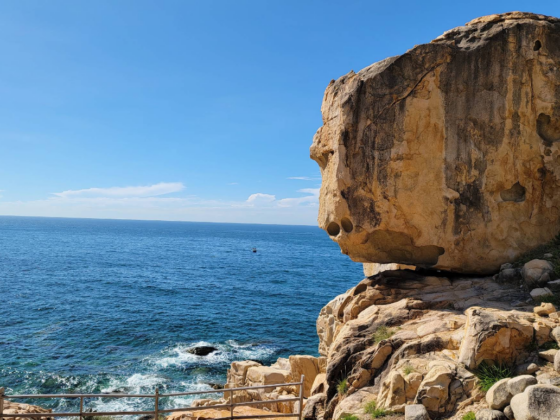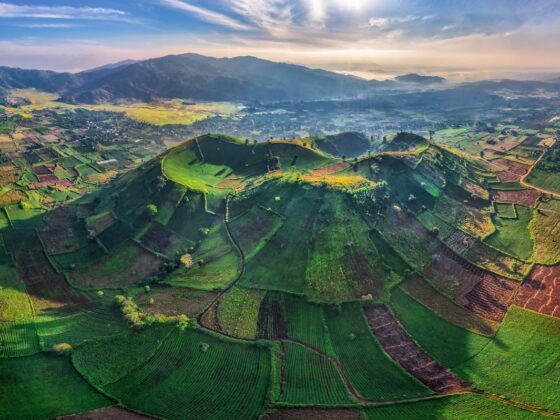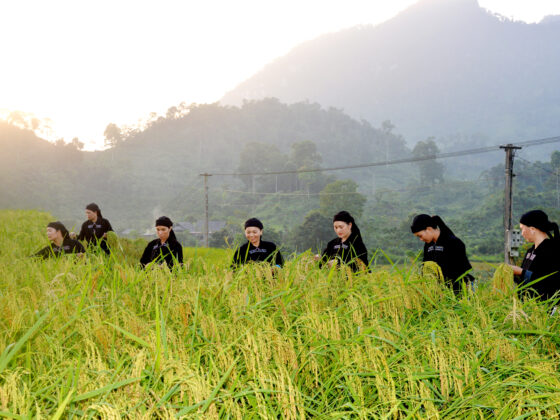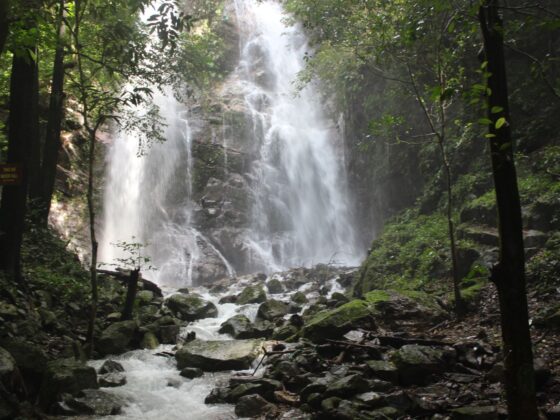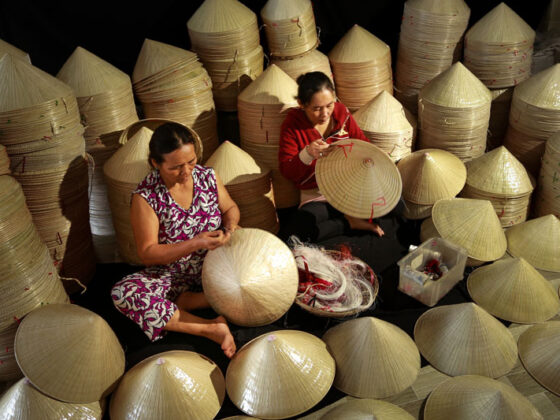Table of Contents Show
Deep within the verdant jungles of Vietnam, a unique cultural phenomenon unfolds—tiny huts known as “tea temples.” Nestled beneath a canopy of lush trees, these serene spaces serve as resting spots for tea pickers and offer a refreshing respite, steeped in spirituality and local traditions. For international travelers, particularly those from Europe and Asia who cherish ritualistic experiences, these jungle tea temples present an irresistible opportunity to immerse themselves in the vast beauty of Moc Chau tea plantations while reconnecting with nature.
Read more interesting posts here:
- The Last Bamboo Forests: Guardians Among Ethnic Minorities in Vietnam
- Exploring the Hidden Vanilla Farms in Vietnam: A Fragrant Journey
- Vietnam Pine Forests: Dreamiest Family Day Trips in Nature
The essence of tea culture in Moc Chau tea plantations
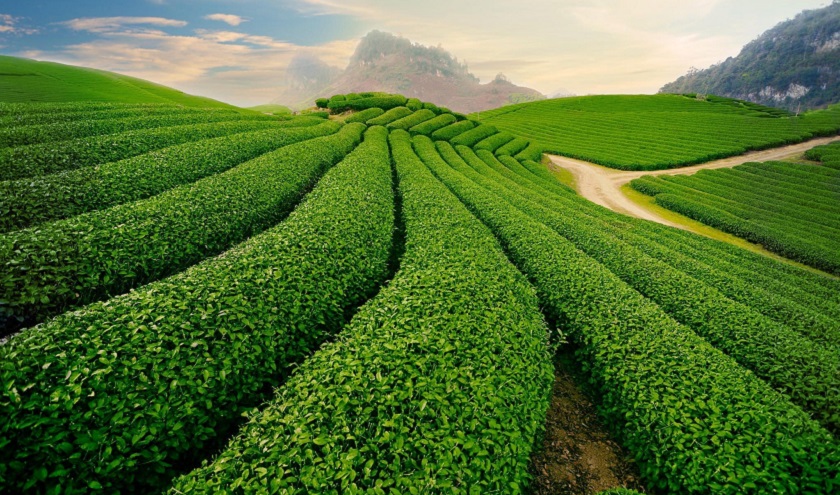
Tea holds a significant place in Vietnamese culture, symbolizing hospitality, respect, and connection. The act of preparing and sharing tea is often surrounded by ritual, from the meticulous brewing process to the warm gestures involved in serving it. In the bustling cities, tea is often enjoyed in cafes or at home, but the Moc Chau tea plantations provide a more intimate and tranquil setting, where the calming influence of nature enhances the experience.
These tea temples are usually situated near tea growing areas, particularly in regions like Thái Nguyên and the rolling hills of Moc Chau tea plantations, known for their high-quality green and herbal teas. Here, tea pickers pause during their laborious work to rest, refresh themselves with the freshly brewed tea, and rejuvenate their spirits amid the tranquil forest setting.
Finding spirituality and wellness within Moc Chau tea plantations
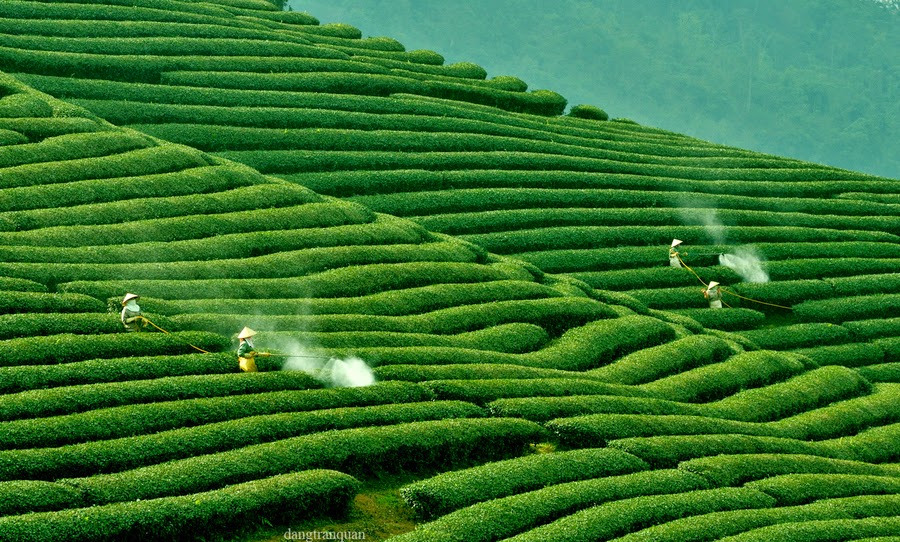
The concept of tea as a spiritual practice is rooted in the belief that quality tea can nourish not just the body but the soul. In the jungle tea temples found throughout the Moc Chau tea plantations, the act of drinking tea transcends mere consumption; it becomes a meditative experience. The tranquil surroundings, characterized by the gentle rustling of leaves and the soothing sounds of nature, create an environment conducive to reflection and mindfulness.
Tea ceremonies in these temples often incorporate traditional practices, such as chanting or meditation, enhancing the sense of spirituality. The focus on wellness resonates with the global trend towards holistic lifestyles. Visitors exploring the Moc Chau tea plantations are encouraged to slow down, breathe deeply, and savor each sip, allowing the flavors of the tea to awaken their senses and promote inner peace.
A unique gathering experience at Moc Chau tea plantations
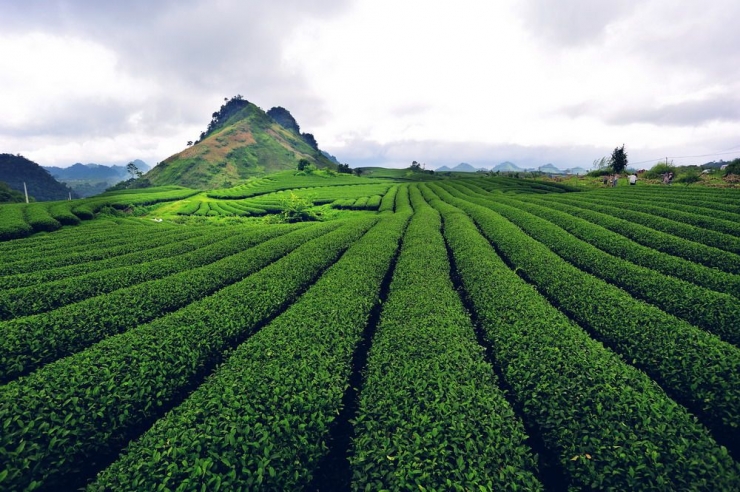
These tiny huts also serve as communal spaces, fostering connection among tea pickers and visitors alike. As pickers gather to enjoy their tea, stories are shared, laughter fills the air, and a sense of camaraderie develops. This communal aspect reflects the core of Vietnamese culture, where relationships and connections are paramount, especially within the tight-knit communities of the Moc Chau tea plantations.
For international travelers, particularly Europeans drawn to ritualistic experiences, joining a group of tea drinkers in a jungle tea temple becomes an authentic cultural immersion. It offers an opportunity to engage with locals, learn about their traditions, and connect with the land in a unique way. Participating in these gatherings enhances cross-cultural understanding, creating lasting memories that extend beyond the consumption of tea.
Irresistible rituals for travelers visiting Moc Chau tea plantations
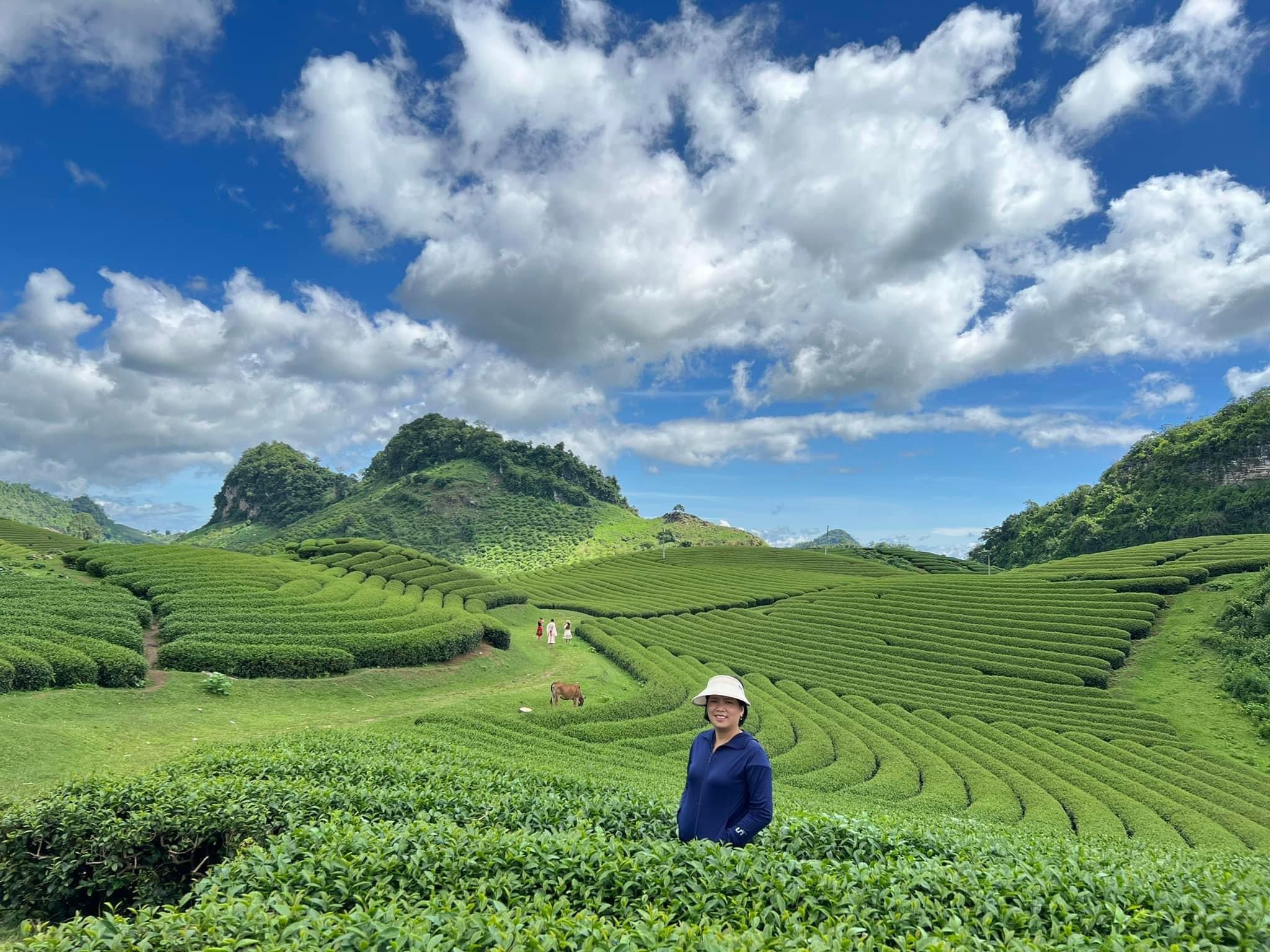
The allure of jungle tea temples lies in their blend of spirituality, wellness, and tradition. For international travelers, who often seek meaningful experiences during their travels, these sacred spots tucked away in Moc Chau tea plantations provide a refreshing contrast to the hustle and bustle of modern life. Engaging with local customs while surrounded by nature fosters a sense of harmony and well-being that resonates deeply.
Travelers can participate in guided tea tastings, where they learn about the history of tea production in Vietnam and the significance of each type. They may also have the chance to witness traditional tea preparation methods, gaining insights into the labor and care involved in bringing a cup of tea to the table. This hands-on experience enhances appreciation and respect for the craft, transforming what might be a simple beverage into a cherished ritual.
Conclusion
Vietnam’s jungle tea temples stand as a testament to the country’s rich cultural fabric, where spirituality, wellness, and local traditions intertwine. For international travelers, particularly those from Europe who cherish ritualistic experiences, these sacred huts within the Moc Chau tea plantations offer an enchanting escape into the heart of Vietnamese tea culture.
As visitors sip on freshly brewed tea amidst the tranquil beauty of the jungle, they engage not just in a moment of relaxation but also in a profound cultural exchange. By celebrating the rituals surrounding tea, these jungle teahouses invite travelers to slow down, connect with nature, and experience the warm hospitality and deep-rooted traditions of Vietnam. Through this exploration, they discover the captivating essence of a culture that values connection, mindfulness, and the simple joys of shared experiences.
Join our vibrant community on Facebook to share your trekking stories and tips, and don’t forget to like the ExoTrails fanpage for the latest updates and exclusive offers!
Frequently Asked Questions (FAQs)
1. Where are the best Moc Chau tea plantations located?
The most famous plantations are located in the Moc Chau Plateau in Son La Province, approximately 200 kilometers west of Hanoi, known for their rolling green hills and cool climate.
2. What is the best time of year to visit Moc Chau tea plantations?
The ideal time to visit is during the spring (February to April) when the tea leaves are fresh and green, or in late autumn (October to December) when the weather is cool and pleasant.
3. Can visitors participate in tea harvesting at Moc Chau tea plantations?
Yes, many local farms offer eco-tourism experiences where visitors can dress in traditional ethnic costumes, learn how to pick tea leaves, and observe the drying and brewing process.

